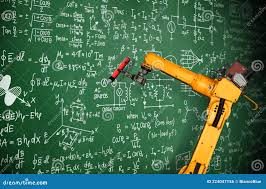In manufacturing, AI Solve is streamlining production ai math problem solver processes and improving product quality. By analyzing sensor data, machine performance metrics, and supply chain dynamics, AI Solve can optimize production schedules, minimize downtime, and identify potential defects before they occur. This not only increases productivity and efficiency but also reduces waste and enhances overall product quality.
In transportation, AI Solve is revolutionizing logistics and supply chain management. By analyzing traffic patterns, weather conditions, and delivery routes, AI Solve can optimize transportation routes, reduce fuel consumption, and minimize delivery times. This enables businesses to improve customer satisfaction, reduce operating costs, and enhance overall efficiency in the transportation industry.
While the potential of AI Solve is vast, it is essential to address ethical and regulatory considerations to ensure its responsible deployment and use. As AI Solve becomes more integrated into various aspects of society, stakeholders must prioritize transparency, accountability, and fairness to mitigate potential risks and maximize its benefits.
In conclusion, AI Solve represents a groundbreaking paradigm shift in problem-solving, leveraging the power of artificial intelligence to tackle complex challenges across industries. By harnessing the capabilities of AI Solve, organizations can unlock new opportunities, drive innovation, and achieve sustainable growth in an increasingly competitive and interconnected world.
